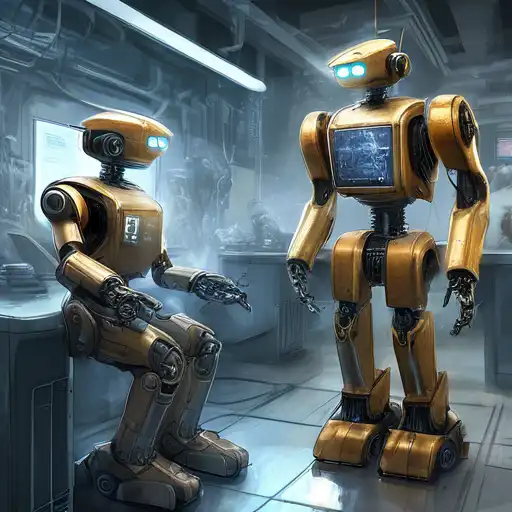The Moral Dilemmas of Autonomous Robots
In the rapidly evolving world of technology, autonomous robots represent a pinnacle of human achievement. These self-operating machines, capable of performing tasks without human intervention, are increasingly becoming a part of our daily lives. From self-driving cars to robotic assistants, the integration of autonomous robots into society raises significant ethical questions that demand our attention.
Understanding Autonomous Robots
Autonomous robots are designed to perform tasks independently, using artificial intelligence (AI) to make decisions based on their programming and the data they collect. This independence, while revolutionary, introduces complex moral dilemmas regarding accountability, privacy, and the potential for harm.
Key Ethical Concerns
The deployment of autonomous robots brings to light several ethical concerns, including:
- Accountability: Who is responsible when an autonomous robot causes harm? The manufacturer, the programmer, or the robot itself?
- Privacy: With the ability to collect and process vast amounts of data, how do we ensure these robots respect individual privacy?
- Decision-making: How should robots be programmed to make ethical decisions in life-and-death situations?
- Employment: The potential for robots to replace human jobs raises questions about economic inequality and the future of work.
Navigating the Future
As we stand on the brink of a new era in technology, it is imperative that we address these ethical concerns head-on. Developing a framework for the ethical design and deployment of autonomous robots is essential to ensure that these technologies benefit humanity as a whole.
One approach is the implementation of machine ethics, a field dedicated to embedding moral decision-making capabilities into robots. By prioritizing ethical considerations in the development process, we can mitigate potential harms and foster trust in these technologies.
Conclusion
The ethics of autonomous robots is a complex and multifaceted issue that requires the collaboration of technologists, ethicists, policymakers, and the public. By engaging in open and inclusive discussions, we can navigate the moral landscape of self-operating machines and harness their potential for the greater good.
As we continue to explore the possibilities and challenges of autonomous robots, it is crucial that we remain vigilant about the ethical implications. Only by doing so can we ensure a future where technology serves humanity's best interests.
